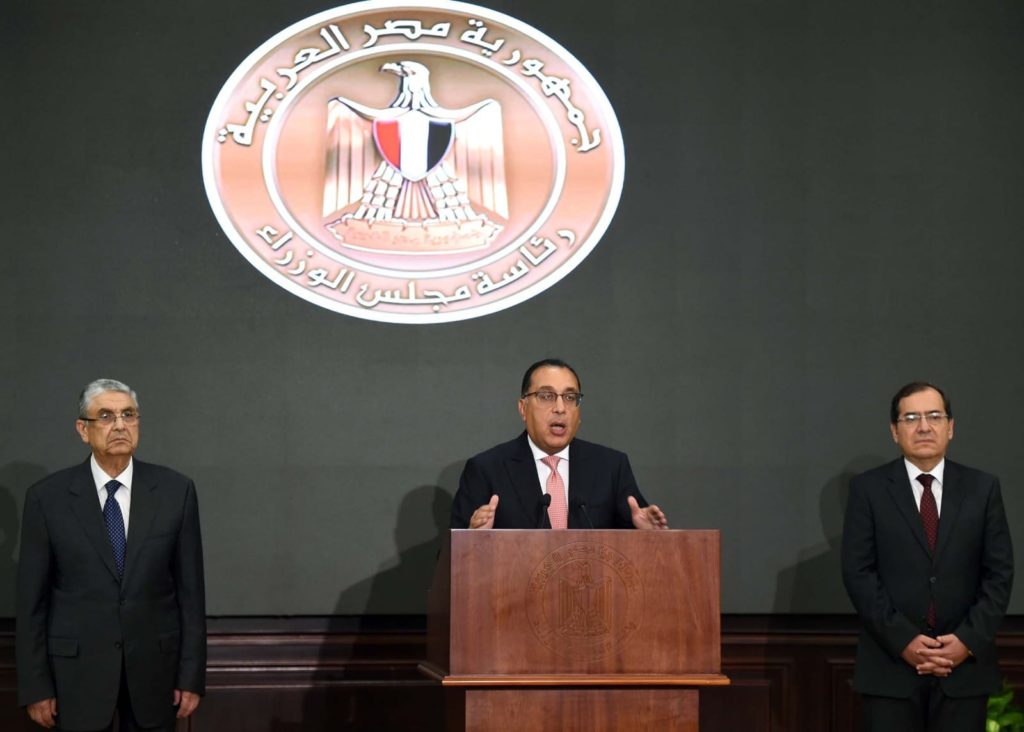Cairo – The Egyptian government announced a series of emergency measures to reduce the load on the national grid and ensure the continued power supply while sparing the manufacturing sector, due to the high temperatures that ranged from 40-45 degrees Celsius last week.
Egypt‘s prime minister Mostafa Madbouly said there’s full coordination between the Ministry of Electricity and Renewable Energy and the Ministry of Petroleum and Mineral Resources. According to him, they rely on fossil fuels – natural gas and diesel – but also renewable energy projects related to the Aswan Dam and expanding wind and solar projects.
The prime minister said that the actual gas and diesel consumption for the past 10 days has reached around 144 to 146 million cubic meters per day. He added that if the power cuts were not implemented, the daily consumption would have been more than 160 to 165 million cubic meters, which was not available for a crisis lasting 10 days.

The prime minister stressed that these measures are necessary to address the current power cuts problem, which is directly related to the unprecedented high temperatures. He urged Egyptians to cooperate with the government to reduce electricity consumption and overcome the crisis.
He underscores that the value of the additional diesel shipments will be between USD250 million to USD300 million. He also announced that the government will be working to reduce electricity consumption in public facilities, such as street lighting and government buildings.
According to the minister, all civil servants, except those with public-facing roles, will work online from home on Sundays, starting from August 6.
Madbouly also directed the Minister of Youth and Sports to play matches before sunset to reduce electricity consumption in sports facilities and stadiums.
The cuts will continue, said Madbouly, as a way of reducing the load on the national grid as long as temperatures are over 35 degrees Celsius. Moreover, he stated that the country will need to implement load-shedding procedures for about one to two hours daily due to high temperatures.
The cuts will only affect residential areas, while hospitals, services and strategic areas will be exempted.
Translation by Georgette Merkhan & Guilherme Miranda




